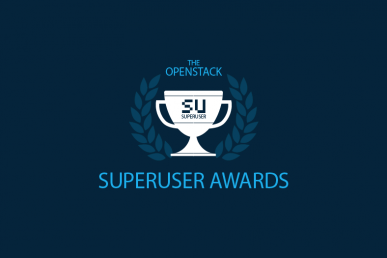Voting is now closed. Stay tuned to find out who wins!
It’s time for the community to determine the winner of the Superuser Award to be presented at the OpenStack Sydney Summit. Based on the community voting, the Superuser Editorial Advisory Board will review the nominees and determine the finalists and overall winner.
Now, it’s your turn.
China UnionPay is among the seven nominees for the Superuser Awards. Review the nomination criteria below, check out the other nominees and rate the nominees before the deadline Wednesday, September 20 at 11:59 p.m. Pacific Time Zone.
Please specify the team and organization for nomination.
UnionPay plays a pivotal role in China’s bankcard industry and has extended its card acceptance to 162 countries and regions. Deployed in 2012, UnionPay Cloud was the first financial cloud powered by OpenStack in China’s financial industry. UnionPay has a dedicated OpenStack team with more than 50 members and many of them with COA training and upstream skills.
How has OpenStack transformed the organization’s business?
With the introduction of OpenStack, UnionPay formed a cloud computing team, focusing on computing, storage, networking etc. OpenStack significantly shortened the time for UnionPay’s data centers to provide resources for the applications, going from a few days to a few minutes. OpenStack’s resilient ability has helped UnionPay to support users and greater business agility. UnionPay Cloud has supported the applications in cooperation with China Eastern Airlines, meanwhile UnionPay also introduced OpenStack to Bank of Shanghai and helped its deployment.
How has the organization participated in or contributed to the OpenStack community?
We are frequent participants of OpenStack Days China and we also participated in most of the meetups in Shanghai and Beijing. We have delivered three keynote speeches in OpenStack Days China to share our experience as a typical OpenStack financial user in China. The request to build the Financial Working Group from UnionPay has been approved by the User Committee and we also participated Large Contributing OpenStack Operators (LCOO) Work Group to make more contribution to community. UnionPay works closely with EasyStack and Intel in the community work and we will give a speech with EasyStack, titled “UnionPay’s five years in the Financial Cloud Powered by OpenStack” at the OpenStack Sydney Summit.
What open source technologies does the organization use in its IT environment?
In terms of cloud computing, we use OpenStack, CentOS, KVM, Xen, Libvirt, Qemu, Open vSwitch, Ceph, Pacemaker, Corosync, HAProxy, Cobbler, Puppet, Ansible, Rabbitmq, Memcached, Mongodb, Mysql, Apache2, Zabbix, etc.
As for OpenStack, we use many components such as Nova, Cinder, Neutron, Keystone, Glance, Ceilometer, Ironic.
For Big Data, we use Hadoop, Spark, Impala, Kudu, etc.
We also use many other open source projects in applications such as Kafka, JBoss Application Server, Netty, Spring, Hibernate, Struts, etc.
What is the scale of the OpenStack deployment?
We have the scale out of 1,200 compute nodes across two data centers, which make up 10,000 cores and about 2.0 petabytes of storage, all running on OpenStack. 80 percent of UnionPay’s production applications, including many critical ones, have been migrated onto UnionPay Cloud, accounting for over 150 applications. Our cloud is now supporting 500 million users, averaging 50 million transactions per day, 3000 transaction per second at peak, with 100 billion RMB per day. In order to support more new functions and more powerful management of UnionPay Cloud, we have completed the deployment of UnionPay Cloud 2.0 powered by OpenStack Liberty, with many applications already running on it.
What kind of operational challenges have you overcome during your experience with OpenStack?
We designed several different network data planes and set corresponding QoS restrictions in both switches and servers to make sure that the network traffic will not affect each other.
We integrated Neutron with Huawei SDN solutions through driver to improve the entire network performance. It is the first mature case and put onto the critical production in China’s financial industry. We modified Keystone’s code to integrate it with UnionPay’s existing SSO system to unify the authentication mechanism. It is risky and complicated to upgrade the existing old OpenStack version directly, so we deployed the new UnionPay Cloud 2.0 paralleled with the old one and make a detailed plan to migrate the applications gradually.
How is this team innovating with OpenStack?
We are able to manage F5 LTM device through LBaas V2 API and implemented the advanced function of LTM beyond LBaas on portal directly through F5 SDK. We are able to manage Cisco ASA devices which locate between different OpenStack regions through FWaas API and custom developed ASA SDK to automate the management of firewall. We developed a unified portal to manage all OpenStack regions for more convenient operation and maintenance. We extended Nova to implement the function of live resize for the virtual machine and it is very important for the critical applications in the financial industry. We are able to make sure the host high availability by deploying a custom daemon process on every controller node to detect the status of compute nodes.
How many Certified OpenStack Administrators (COAs) are on your team?
None, but dozens of engineers in our team have taken COA training and are preparing for COAs tests in 2018.
Cover photo courtesy UnionPay.
- SK Telecom 5GX Cloud Labs wins the 2020 Superuser Awards - October 20, 2020
- Where are they now? Superuser Awards winner: VEXXHOST - August 11, 2020
- Where are they now? Superuser Awards: City Network - June 18, 2020

)










